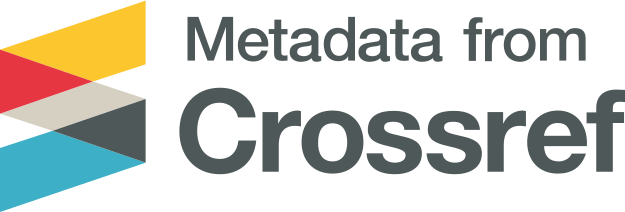Menguak Makna Akuntabilitas dalam Mengelak Lika-Liku Fraud: Studi Fenomenologi pada Tourist Village
DOI:
https://doi.org/10.35838/jrap.2023.010.02.23Keywords:
Accountability, Fraud, Phenomenology, Tourist VillageAbstract
This study explores the revenue of Tourism Villages in Bali Province and the important role of financial management and reporting in preventing accounting fraud. Tourism villages in Bali are considered as potential communities in local tourism development and major contributors at the regional level. Identified revenue sources include rental of tourist attractions, tour packages, entrance tickets, and foreign tourist donations. The role of financial reporting in resource accountability and performance evaluation is explained. Transparency and accountability are implemented to maintain financial integrity and involve community participation in oversight. Local culture, particularly the Tri Hita Karana concept, is identified as a key factor in preventing accounting fraud through the internalisation of ethical values. This research also highlights the fraud prevention system involving detectors, assessors, effectors, and communication networks. The results showed the successful implementation of transparency, accountability, local culture, and prevention system in avoiding accounting fraud in the financial management of tourist villages. This study provides insights for tourist village managers and policy makers to improve honest and accountable financial management, support sustainable development, and maintain the integrity of tourist villages as valuable assets in Bali's tourism industry.
Downloads
References
Alinsari, N., Nugrahesthy, A., & Prasetya, A. (2023). Have The Principles Of Village Financial Management Implemented? JAKU (Jurnal Akuntansi & Keuangan Unja) (E-Journal), 7(1), 10–19.
Arina, A. I. S., Masinambow, V., & Walewangko, E. N. (2021). Pengaruh Dana Desa Dan Alokasi Dana Desa Terhadap Indeks Desa Membangun Di Kabupaten Minahasa Tenggara. Jurnal Pembangunan Ekonomi Dan Keuangan Daerah, 22(3), 22–41.
Ataro, G. (2020). Methods, methodological challenges and lesson learned from phenomenological study about OSCE experience: Overview of paradigm-driven qualitative approach in medical education. In Annals of Medicine and Surgery (Vol. 49, pp. 19–23). Elsevier Ltd. https://doi.org/10.1016/j.amsu.2019.11.013
Ayu, A., Rahmawati, R., & Ramadhan, A. (2023). Fraud detection dan fraud prevention dalam upaya tindakan kecurangan laporan keuangan desa. Jesya, 6(2), 1517–1527. https://doi.org/10.36778/jesya.v6i2.1147
Bungin, B. (2017). Metodologi penelitian kualitatif : aktualisasi metodologis ke arah ragam varian kontemporer. Rajawali Pers.
Chaerunissa, S. F., & Yuniningsih, T. (2020). Analisis Komponen Pengembangan Pariwisata Desa Wisata Wonolopo Kota Semarang. Journal of Public Policy and Management Review, 9(4), 159–175.
Chen, Y. J., Liou, W. C., Chen, Y. M., & Wu, J. H. (2019). Fraud detection for financial statements of business groups. International Journal of Accounting Information Systems, 32, 1–23. https://doi.org/10.1016/j.accinf.2018.11.004
Daurrohmah, E. W., Hidayah, U., & Hendrian. (2022). Praktik Pencegahan Accounting Fraud pada Pengelolaan Unit Usaha Milik Desa. Jurnal Akuntansi Multiparadigma, 13(2), 378–392.
Daurrohmah, E. W., & Urumsah, D. (2022). Bribery in Government Agency: A Phenomenological Study. Jurnal Ilmiah Akuntansi, 6(2), 254-265. https://doi.org/10.23887/jia.v6i2.34951
Dewi, N. K. U. K. (2020). Internalisasi Tri Hita Karana Dalam Usaha Pencegahan Fraud Pada Lembaga Perkreditan Desa (LPD) Bali Indonesia, Accounting and Business Information System, 9(4), 1-18. https://doi.org/10.22146/abis.v9i4.70390
Dhar, B. K., Sarkar, S. M., & Ayittey, F. K. (2022). Impact of social responsibility disclosure between implementation of green accounting and sustainable development: A study on heavily polluting companies in Bangladesh. Corporate Social Responsibility and Environmental Management, 29(1), 71–78. https://doi.org/10.1002/csr.2174
DJPB Kementeraian Keuangan. (2022). Membedah Potensi dan Tantangan Dana Desa Tahun 2022.
Emzir. (2016). Metodologi Penelitian Kualitatif : Analisis Data (Vol. 5). Rajawali Pers.
Farasat, M., Azam, A., & Hassan, H. (2021). Supervisor bottom-line mentality, workaholism, and workplace cheating behavior: the moderating effect of employee entitlement. Ethics and Behavior, 31(8), 589–603. https://doi.org/10.1080/10508422.2020.1835483
Faysal, A., & Pradana, G. W. (2023). Peran Pengawasan Badan Permusyawaratan Desa (Bpd) Dalam Penggunaan Dana Desa Tahun 2022 (Studi Kasus Di Desa Domas, Kecamatan Menganti, Kabupaten Gresik). Publika, 11(3), 2215–2230.
Fikri, Z., & Septiawan, Y. (2020). Pemanfaatan dana desa dalam pengembangan desa wisata di desa kurau barat. Publicio: Jurnal Ilmiah Politik, Kebijakan dan Sosial, 2(1), 24-32.
Gunawan, B. (2023). Strategi Pengembangan Desa Wisata Liang Pematang Di Kec. Sinembah Tanjung Muda Hulu, Untuk Meningkatkan Kesejahteraan Masyarakat Kabupaten Deli Serdang. Jurnal Darma Agung, 31(4), 970–977. https://doi.org/10.46930/ojsuda.v31i4.3569
Haeruddin, S. H., & Arsyad, M. (2023). Analisis Penerapan Pengelolaan Akuntansi Keuangan Desa di Desa Nisombalia Kecamatan Marusu Kabupaten Maros Provinsi Sulawesi Selatan. Jurnal Mirai Management, 8(1), 355–366.
Hendar, & Tanjung, R. (2020). Optimalisasi Penerimaan Negara Melalui Sinkronisasi Dan Sinergitas Pengelolaan Apbn Dan Apbd Di Kabupaten Karawang. Jurnal Proaksi, 2, 53–58.
Hendrawati, E., & Pramudianti, M. (2020). Partisipasi, Transparansi, Dan Akuntabilitas Perencanaan Dan Penganggaran Dana Desa. Jurnal Riset Akuntansi Kontemporer, 12(2), 100–108.
Herdiana, D., Tinggi, S., Administrasi, I., Stia, (, & Cimahi). (2019). Peran Masyarakat Dalam Pengembangan Desa Wisata Berbasis Masyarakat. In JUMPA (Vol. 6, Issue 1).
Hidajat, T. (2020). Rural banks fraud: a story from Indonesia. Journal of Financial Crime, 27(3), 933–943. https://doi.org/10.1108/JFC-01-2020-0010
Jo, H., Hsu, A., Llanos-Popolizio, R., & Vergara-Vega, J. (2021). Corporate Governance and Financial Fraud of Wirecard. European Journal of Business and Management Research, 6(2), 96–106. https://doi.org/10.24018/ejbmr.2021.6.2.708
Krylov, S. (2023). Analysis of Corporate Financial Statements as a Tool of Financial Management in Modern Conditions. https://ssrn.com/abstract=4490630
Lourenço, R. P. (2015). An analysis of open government portals: A perspective of transparency for accountability. Government Information Quarterly, 32(3), 323–332. https://doi.org/10.1016/j.giq.2015.05.006
Malumperas, M. H. J., Manossoh, H., & Pangerapan, S. (2021). Akuntabilitas Pengelolaan Alokasi Dana Desa (Studi Kasus Di Desa Bowongkali, Kecamatan Tabukan Tengah Kabupaten Kepulauan Sangihe, Provinsi Sulawesi Utara). Jurnal EMBA, 9(1), . 266-272.
Mashitoh, H., Daurrohmah, E. W., Inan, D. I., & Firman, A. (2023). The Analysis of Fraud in Perspective of Fraud Pentagon Theory: An Empirical Study in Indonesia. Jurnal Akuntansi Terapan Indonesia, 06, 2–107. https://doi.org/10.18196/jati.v6i2.1
Miles, M. B., Huberman, A. M., & Saldaña, J. (2019). Qualitative data analysis : A methods Sourcebook (Vol. 4).
Minang, H. P., Digdowiseiso, K., & Sugiyanto, E. (2021). Pelaksanaan Kebijakan Alokasi Dana Desadalam Memperdayakan Masyarakat Desa: Studi Kasus Desa Caturtunggal, Kecamatan Depok, Kabupaten Sleman. Ilmu Dan Budaya, 42(1), 68–87.
Moleong, L. J. (2021). Metodologi penelitian kualitatif (Vol. 40). PT Remaja Rosdakarya.
Ningsih, W., Arza, F. I., & Sari, V. F. (2020). Analisis Akuntabilitas Pengelolaan Alokasi Dana Desa. Jurnal Eksplorasi Akuntansi, 2(4), 3517-3532. http://jea.ppj.unp.ac.id/index.php/jea/issue/view/30
Nurohman, Y. A., Qurniawati, R. S., & Hasyim, F. (2019). Dana Desa Dalam Peningkatan Kesejahteraan Masyarakat Pada Desa Wisata Menggoro. Jurnal Magisma, 7(1), 35–43.
Ozcelik, H. (2020). An Analysis Of Fraudulent Financial Reporting Using The Fraud Diamond Theory Perspective: An Empirical Study On The Manufacturing Sector Companies Listed On The Borsa Istanbul. In Contemporary Studies in Economic and Financial Analysis (Vol. 102, pp. 131–153). Emerald Group Holdings Ltd. https://doi.org/10.1108/S1569-375920200000102012
Peraturan Menteri Dalam Negeri Republik Indonesia Nomor 113 Tahun 2014 Tentang Pengelolaan Keuangan Desa, Pub. L. No. 113 Tahun 2014, Menteri Dalam Negeri Republik Indonesia (2014).
Peraturan Menteri Desa, Pembangunan Daerah Tertinggal, Dan Transmigrasi Republik Indonesia Nomor 7 Tahun 2021 Tentang Prioritas Penggunaan Dana Desa Tahun 2022, Kementerian Desa, Pembangunan Daerah Tertinggal, Dan Transmigrasi (2021).
Peraturan Menteri Desa, Pembangunan Daerah Tertinggal, Dan Transmigrasi Republik Indonesia Nomor 6 Tahun 2020 Tentang Perubahan Atas Peraturan Menteri Desa, Pembangunan Daerah Tertinggal, Dan Transmigrasi Nomor 11 Tahun 2019 Tentang Prioritas Penggunaan Dana Desa Tahun 2020, Kementerian Desa, Pembangunan Daerah Tertinggal, Dan Transmigrasi Republik Indonesia (2020).
Perdana, M. F., Laksmono, B. S., Harto, S., & Ismandianto. (2019). Partisipasi Masyarakat Dalam Pelaksanaan Musyawarah Rencana Pembangunan Desa Di Desa Titian Modang Kopah Kecamatan Kuantan Tengah Kabupaten Kuantan Singing Tahun 2017. WEDANA: Jurnal Kajian Pemerintahan, Politik Dan Birokrasi, 5(2), 38–49.
Pramana, Y., Suprasto, H. B., Putri, I. G. A. M. D., & Budiasih, I. G. A. N. (2019). Fraud factors of financial statements on construction industry in Indonesia stock exchange. International Journal of Social Sciences and Humanities, 3(2), 187–196. https://doi.org/10.29332/ijssh.v3n2.313
Puspa, D. F., & Prasetyo, R. A. (2020). Pengaruh Kompetensi Pemerintah Desa, Sistem Pengendalian Internal, Dan Aksesibilitas Laporan Keuangan Terhadap Akuntabilitas Pengelolaan Dana Desa. Media Riset Akuntansi, Auditing & Informasi, 20(2), 281–298. https://doi.org/10.25105/mraai.v20i2.7894
Rajoendah, M. I. K., Mubarak, F., Syaganti, I., & Syah, F. (2023). Integrasi Desa Wisata melalui Optimalisasi Peta Rute Wisatasebagai Konten Pemasaran Pariwisata. CoverAge Journal of Strategic Communication, 14(1), 12–24.
Rayyani, W. O., Jumiati, & Sunarti. (2019). Menguak Implementasi Prinsip Good Government Governance Dalam Pengelolaan Dana Desa: Sebuah Upaya Pencegahan Fraud. AkMen Jurnal Ilmiah, 16(3), 342–354. https://humas.gowakab.go.id
Rizky, M. F., & Mashur, D. (2022). Penerapan Sustainable Development Goals Desa di Desa Perkebunan Sungai Parit Kecamatan Sungai Lala Kabupaten Indragiri Hulu. Jurnal Ilmiah Wahana Pendidikan, 8(15), 385–394. https://doi.org/10.5281/zenodo.7049684
Robinson, T. R., Henry, E., & Broihahn, M. A. (2020). International financial statement analysis. John Wiley & Sons, Incorporated.
Shonhadji, N., & Maulidi, A. (2022). Is it suitable for your local governments? A contingency theory-based analysis on the use of internal control in thwarting white-collar crime. Journal of Financial Crime, 29(2), 770–786. https://doi.org/10.1108/JFC-10-2019-0128
Sofia, G., Afni, Z., & Andriani, W. (2023). Analisis Akuntabilitas Pengelolaan Dana Desa (Studi pada Nagari Aia Manggih periode 2018-2022). Ekonomis: Journal of Economics and Business, 7(2), 1172-1181. https://doi.org/10.33087/ekonomis.v7i2.1390
Tsalis, T. A., Malamateniou, K. E., Koulouriotis, D., & Nikolaou, I. E. (2020). New challenges for corporate sustainability reporting: United Nations’ 2030 Agenda for sustainable development and the sustainable development goals. Corporate Social Responsibility and Environmental Management, 27(4), 1617–1629. https://doi.org/10.1002/csr.1910
Wardah, Z., Carolina, A., & Wulandari, A. (2022). Pengaruh Whistleblowing System, Internal Control, Leadership dan Budaya Organisasi terhadap Fraud Prevention. Nominal Barometer Riset Akuntansi Dan Manajemen, 11(2), 233–247. https://doi.org/10.21831/nominal.v11i1.36986
Waruwu, S. E. R. N. (2023). Analisis Pengelolaan Dana Desa Dalam Upaya Meningkatkan Pembangunan Dan Kesejahteraan Masyarakat Di Desa Lasarabaene. JOURNAL ECONOMICAND STRATEGY (JES), 4(1), 72–81. https://journal.utnd.ac.id/index.php/jes
Zuberi, O., & Mzenzi, S. I. (2019). Analysis of employee and management fraud in Tanzania. Journal of Financial Crime, 26(2), 412–431. https://doi.org/10.1108/JFC-01-2018-0012
Downloads
Published
Issue
Section
License
Authors who publish with this journal agree to the following terms:
- Authors retain copyright and grant the journal right of first publication with the work simultaneously licensed under a Creative Commons Attribution-ShareAlike 4.0 International License that allows others to share the work with an acknowledgement of the works authorship and initial publication in this journal.
- Authors are able to enter into separate, additional contractual arrangements for the non-exclusive distribution of the journals published version of the work (e.g., post it to an institutional repository or publish it in a book), with an acknowledgement of its initial publication in this journal.
- Authors are permitted and encouraged to post their work online (e.g., in institutional repositories or on their website) prior to and during the submission process, as it can lead to productive exchanges, as well as earlier and greater citation of published work (See The Effect of Open Access).














